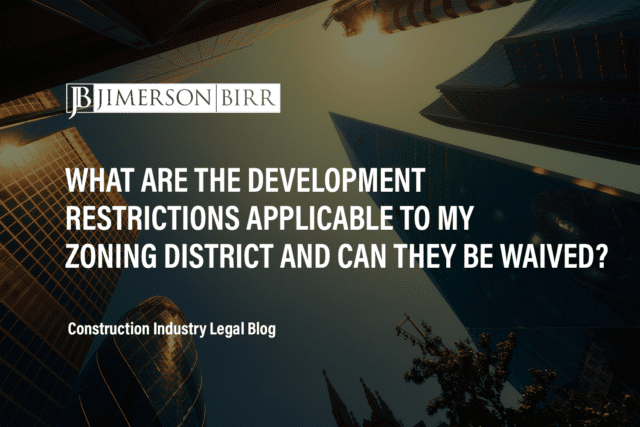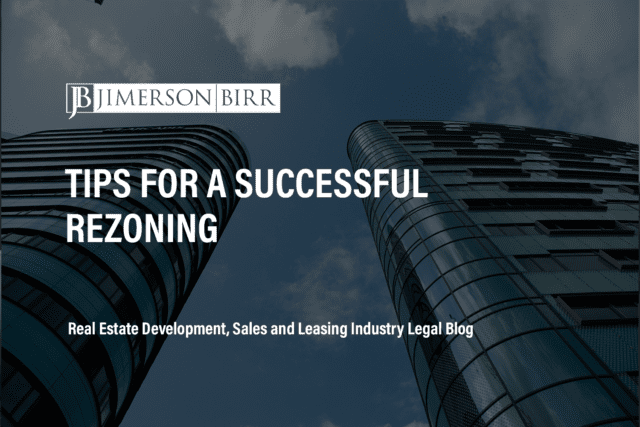Which Florida laws and regulations apply to permitting, land use, and zoning?
In Florida, various laws and regulations govern permitting, land use, zoning, and representation during administrative proceedings. Key statutes include the Florida Land Use and Zoning Law (Chapters 163 and 166, Florida Statutes) and the Florida Administrative Procedure Act (Chapter 120, Florida Statutes).
Chapter 163 addresses local government planning and land development regulation, while Chapter 166 focuses on municipal governance, including zoning and land use planning powers. These statutes provide a comprehensive framework for local governments to develop and enforce land use policies.
The Florida Administrative Procedure Act establishes the procedures for administrative proceedings, including hearings, rulemaking, and appeals involving state agencies. This act is crucial for businesses and individuals seeking representation during administrative proceedings related to permitting, land use, and zoning matters.
Need help with a matter related to coordinating permitting, land use, and zoning? Schedule your consultation today with a top economic development attorney.
What issues related to permitting, land use, and zoning commonly lead to litigation?
The following issues are among the most common in litigation involving permitting, land use, and zoning:
- Disputes over zoning decisions: Conflicts may arise between property owners and local government bodies when zoning decisions negatively impact a property’s value or use, leading to litigation.
- Challenges to permit approvals or denials: When permits are denied or approved with conditions, affected parties may resort to legal action to contest the decision.
- Noncompliance with environmental regulations: Developers or businesses may face litigation if their projects fail to comply with applicable environmental laws, such as the Florida Environmental Land and Water Management Act (Chapter 380, Florida Statutes) and the National Environmental Policy Act (NEPA).
- Disagreements over land use restrictions: Conflicts can arise when property owners believe land use restrictions, such as easements or covenants, are unjust or improperly enforced.
- Conflicts between state and local regulations: In some cases, state and local regulations may conflict, leading to legal disputes over which rules should take precedence.
What are effective measures to minimize the risk of litigation over permitting, land use, and zoning?
Implementing the following strategies may help mitigate risk:
- Engage in early stakeholder communication: Open communication with stakeholders, such as property owners, local government officials, and community members, can help address concerns and minimize conflicts before they escalate.
- Retain experienced legal counsel: Employing knowledgeable attorneys with expertise in Florida land use and zoning laws can help ensure compliance and provide effective representation during administrative proceedings.
- Thoroughly research applicable regulations: A comprehensive understanding of relevant federal, state, and local regulations is crucial for compliance and informed decision-making.
- Develop a well-planned project proposal: Prepare a detailed proposal that addresses potential concerns, such as environmental impacts and traffic congestion, to demonstrate your commitment to addressing community needs.
- Participate in mediation or alternative dispute resolution: If disputes arise, consider engaging in mediation or alternative dispute resolution to find mutually beneficial solutions and avoid litigation.
- Stay informed of regulatory changes: Keep abreast of changes in zoning and land use regulations, as well as court decisions that may affect your project, to minimize the risk of noncompliance and litigation.
When a set of facts is appropriate to meet litigation requirements, there are many paths a claimant may take. We are value-based attorneys at Jimerson Birr, which means we look at each action with our clients from the point of view of costs and benefits while reducing liability. Then, based on our client’s objectives, we chart a path to seek appropriate remedies.
To determine whether your unique situation may necessitate litigation, please contact our office to set up your initial consultation.
What strategies can be employed to coordinate permitting, land use and
Frequently Asked Questions
- What are the critical differences between zoning, land use, and permitting?
Zoning refers to local government regulations that dictate how land can be used and developed, including building size, location, and use restrictions. Land use refers to the classification of land based on its intended purpose, such as residential, commercial, or industrial. Permitting is obtaining necessary approvals from local, state, and federal agencies to develop or modify land according to zoning and land use regulations.
- How do Florida’s economic development incentives impact land use and zoning?
Florida’s economic development incentives aim to attract businesses and stimulate growth. These incentives can include tax credits, grants, or expedited permitting processes. In addition, they may influence land use and zoning decisions by encouraging local governments to rezone or modify land use designations to accommodate new developments or industries.
- What role does public input play in land use and zoning decisions?
Public input is a crucial component of land use and zoning decisions, as it allows community members to voice concerns and provide feedback on proposed developments. In Florida, public hearings and community meetings are often required for zoning changes or significant development projects, allowing stakeholders to participate in decision-making and potentially influencing the outcome.
Have more questions about governance or operations for your business?
Crucially, this overview of permitting, land use, and zoning for economic development initiatives does not begin to cover all the laws implicated by this issue or the factors that may compel the application of such laws. Every case is unique, and the laws can produce different outcomes depending on the individual circumstances.
Jimerson Birr attorneys guide our clients to help make informed decisions while ensuring their rights are respected and protected. Our lawyers are highly trained and experienced in the nuances of the law, so they can accurately interpret statutes and case law and holistically prepare individuals or companies for their legal endeavors. Through this intense personal investment and advocacy, our lawyers will help resolve the issue’s complicated legal problems efficiently and effectively.
Having a Jimerson Birr attorney on your side means securing a team of seasoned, multi-dimensional, cross-functional legal professionals. Whether it is a transaction, an operational issue, a regulatory challenge, or a contested legal predicament that may require court intervention, we remain a tireless advocate every step of the way. Being a value-added law firm means putting the client at the forefront of everything we do. We use our experience to help our clients navigate even the most complex problems and come out the other side triumphant.
If you want to understand your case, the merits of your claim or defense, potential monetary awards, or the amount of exposure you face, you should speak with a qualified Jimerson Birr lawyer. Our experienced team of attorneys is here to help. Call Jimerson Birr at (904) 389-0050 or use the contact form to schedule a consultation.


We live by our 7 Superior Service Commitments
- Conferring Client-Defined Value
- Efficient and Cost-Effective
- Accessibility
- Delivering an Experience While Delivering Results
- Meaningful and Enduring Partnership
- Exceptional Communication Based Upon Listening
- Accountability to Goals











